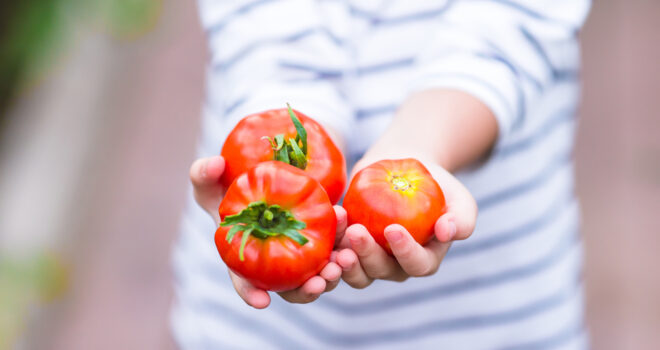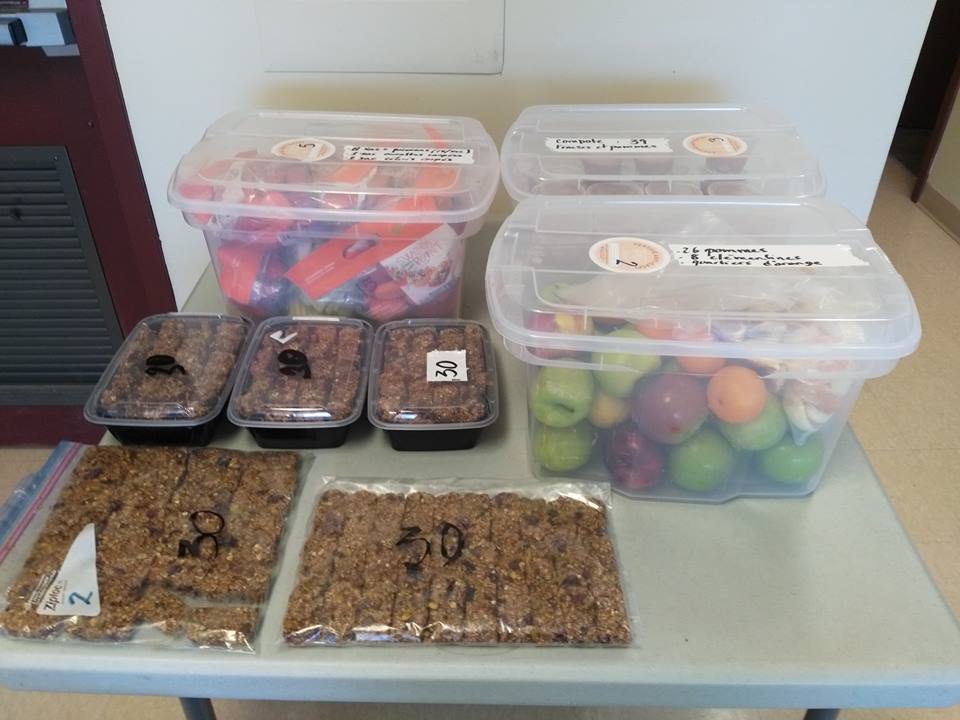In Outaouais, Quebec, Canada, organizations fighting food waste and food insecurity have teamed up to provide elementary schools with plant-based snacks.
Increasing fruit and vegetable consumption
A simple fact gave rise to the project: food security organizations critically need more fresh, unprocessed fruits and vegetables.
What’s more, recommendations for fruit and vegetable consumption are now well established. According to Canada’s Food Guide and the recent EAT-Lancet Report, fruits and vegetables should fill half of our plate. EAT-Lancet report experts even stress that Canadians should eat an additional 110 g of vegetables per day.
But fresh fruits and vegetables are fragile, which explains why they account for 45% of food waste in Canada. Organizations providing food support to those most in need therefore face serious challenges. It’s difficult to recover, store and distribute fresh produce without adequate infrastructure.
The Regroupement des cuisines collectives de Gatineau, in collaboration with the Table de concertation sur la faim et le développement social de l’Outaouais and L’Escouade anti-gaspillage alimentaire, seem to have come up with a solution.
35 tonnes of fruits and vegetables saved from the garbage and redistributed
Various partners are involved at different stages of the project, which is called Collation pour tous [Snacks for all]. First, unsold fruits and vegetables are recovered from a local Metro grocery store. About 60 kg of produce is saved from the garbage every day. L’Escouade anti-gaspillage alimentaire then takes the produce to the Office d’habitation de l’Outaouais and La Soupe Populaire de Hull to be stored. Then it’s sorted and distributed. Some 70% of the fruits and vegetables recovered are distributed to those most in need: as snacks in four local schools or via community fridges. The rest is given to farmers to feed their livestock.
The Regroupement des cuisines collectives de Gatineau gives new life to any spoiled produce, so students get to enjoy fruit compote, dried fruit or ice pops made with pureed fruit.
This approach, which fights food waste and food insecurity at the same time, is what makes Collation pour tous unique. The initiative has won three prizes, including the David Suzuki Foundation’s Demain, le Québec people’s choice award.
Every year, nearly 35 tonnes of fruits and vegetables are recovered and redistributed to 1,300 elementary students in Gatineau, helping them meet their dietary needs.
Collation pour tous is a winner of the 100° call for proposals, “S’approvisionner autrement: fruits et légumes à l’année pour tous!” [Sourcing differently: Fruits and vegetables all year round for all!], conducted in partnership with the Louis Bonduelle Foundation.
100° is the reference for healthy living in Quebec.
Resources
Regroupement des cuisines collectives de Gatineau [Gatineau community kitchen group]
Table de concertation sur la faim et le développement social de l’Outaouais [Outaouais hunger and social development working group]
EAT-Lancet Report: healthy food from sustainable production



 Rosemary or Rosmarinus officinalis
Rosemary or Rosmarinus officinalis  Melons
Melons  Vegetable garden: growing melon
Vegetable garden: growing melon 










